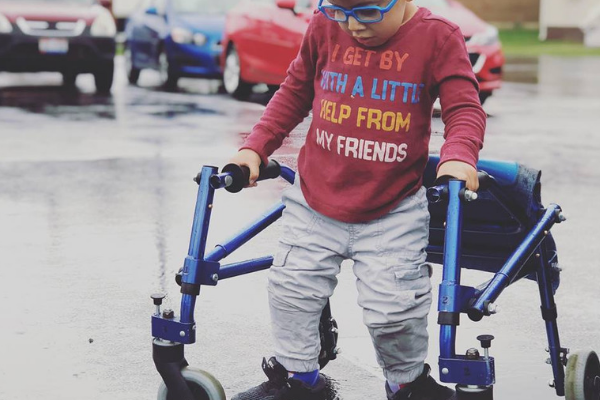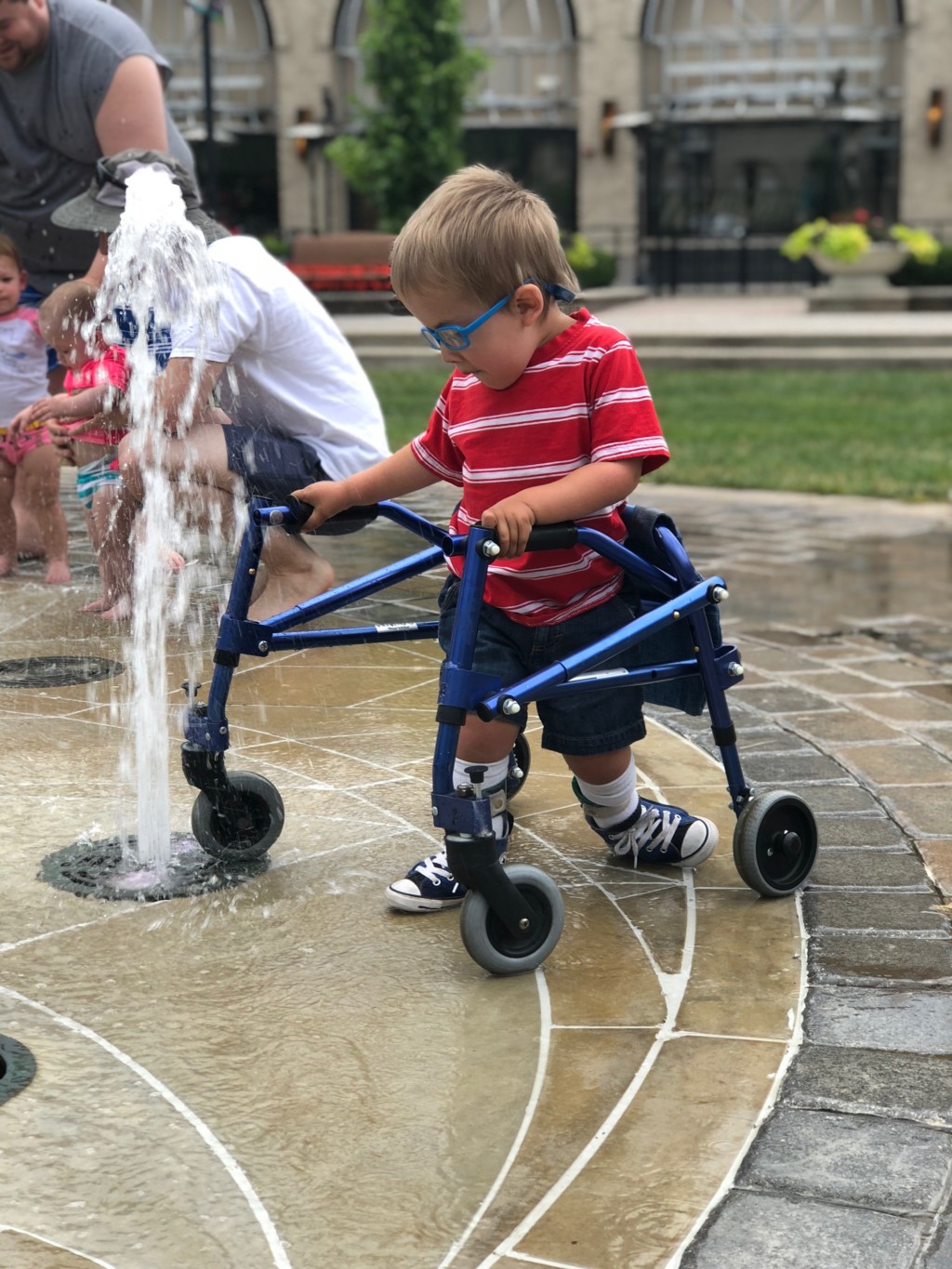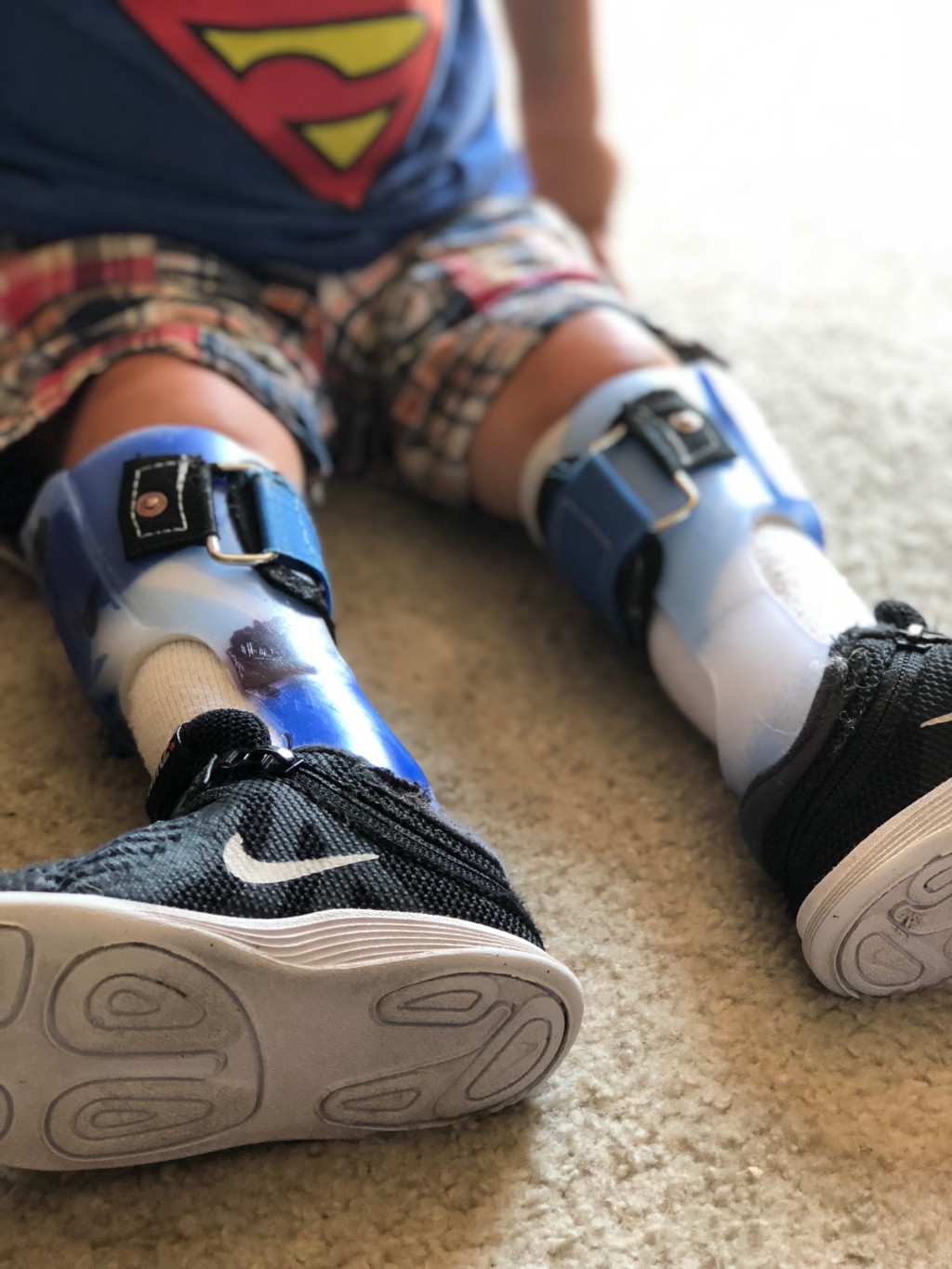“Your child has spina bifida, he most likely will never walk ….”
 WHAT?
WHAT?
We sat in shock while we processed this news. The doctor mentioned a few other things about spina bifida, but for some reason this was the news that I grabbed and held. Won’t walk. This is awful. Will he be able to play? How will he live? How will he be happy?
Looking back on this now, I feel ashamed of these thoughts, but in that moment it seemed every hope I had for Thomas was stripped away with the fact that he might not walk.
We started therapy with Thomas when he was 2 months old. I was determined he would walk someday. I had watched enough inspirational Facebook videos and catchy news headlines to know that if he worked hard enough and had enough people loving him, he would walk and everything would be ok. Everyone around us always asked that question first, so it must be important. “Will he walk?” “How is his walking and moving going?”

It wasn’t until later that I realized how ableist I had been. Not being able to walk didn’t change anything about who he was or the huge personality he brings to the world. In fact, if I am being honest, not being able to walk probably helped shape him to be this funny, stubborn, resourceful kid who I can’t imagine my life without. This is when I realized that my grief had been misplaced on diagnosis day.
HE CAN.
Thomas can feel his legs down to about his knees, but anything lower he has decreased, if any, sensation. He wears ankle foot orthotics (AFOs), which give him some stability that he wouldn’t otherwise have, and he walks with the help of a walker, which we fondly call R2D2. We work hard to find a way for him to be as involved in activities as his brothers and are big advocates of universally accessible design projects (looking at you, Owen’s Place!!). He has taught me that mobility does not define his happiness. R2D2 is part of him, he loves it. Most of us look at a person with a mobility device and think, “How sad”, but the reality might be that the device is quite joyful and even sentimental. It brings independence that otherwise would be non-existent.

We still work on walking independently in therapy, but I am always cautious of how we treat that milestone. I celebrate it because it makes him extremely proud when he does something hard, not because I want him to walk. When he takes steps or stands independently, it’s not the ability that gives me joy it’s that euphoric grin that shoots across his chubby little face and the way his eyes light up as he realizes he accomplished something all on his own.
Those that have delays, whatever those delays might be, work hard to find their place in a world that doesn’t always have space for them. We need to be aware of how we celebrate them and their hard work. Don’t celebrate something that makes them more like you, thinking that is what they want. Celebrate that they achieved something they worked at, no matter what it is or how different it may be from your idea of a milestone.













I really needed to hear this today. It’s a completely different level, but we have struggled these past few months with my son’s speech (or complete lack thereof). It’s hard for my Mama heart to not get caught up in the all the milestones, when my son is still the kid that I adore and cherish, no matter how many words he does (or does not) say.
Comments are closed.